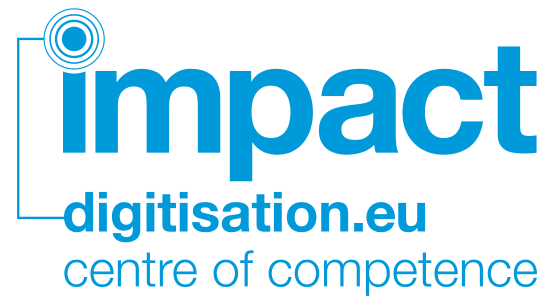On the occasion of the Digitisation Days in Madrid, on 19th May 2014 our organization sought to test the attendees by providing them with a work session, in the form of a round table, regarding the problems that digitisation creates for copyright … or was it the other way around? The fact is that when a company engaging in digitisation or a library hears the word copyright it tends to go on the defensive, as though copyright poses a threat to its operations. Hence the title chosen for this session!
With a view to providing a reply to that question and to showing copyright in a positive light,  the round table was fortunate enough to receive valuable contribution of professor Gemma Minero, Doctor of Law and a disciple of one of the world’s greatest authorities on copyright, Rodrigo Bercovitz. She is also the coordinator of one of the most outstanding masters courses in copyright currently available in Spain: that given by the Universidad Autónoma de Madrid. Gemma was accompanied by Magdalena Vinens, the General Manager of CEDRO which is the copyright collective management organization that represents and defends the interests of writers and publishers in Spain. Magdalena has spent a large part of her life in Geneva monitoring and participating in all the initiatives towards changes in the law that have been shaking copyright for decades and she is an important player as regards the development of some areas connected with digitisation. The moderator was Antonio Castán, lawyer and partner at Elzaburu, a law firm which has belonged to Impact since last year and specializes precisely in intellectual property.
the round table was fortunate enough to receive valuable contribution of professor Gemma Minero, Doctor of Law and a disciple of one of the world’s greatest authorities on copyright, Rodrigo Bercovitz. She is also the coordinator of one of the most outstanding masters courses in copyright currently available in Spain: that given by the Universidad Autónoma de Madrid. Gemma was accompanied by Magdalena Vinens, the General Manager of CEDRO which is the copyright collective management organization that represents and defends the interests of writers and publishers in Spain. Magdalena has spent a large part of her life in Geneva monitoring and participating in all the initiatives towards changes in the law that have been shaking copyright for decades and she is an important player as regards the development of some areas connected with digitisation. The moderator was Antonio Castán, lawyer and partner at Elzaburu, a law firm which has belonged to Impact since last year and specializes precisely in intellectual property.
The first point made during the course of the discussion was that within the European Union digitisation has progressed from being a threat to copyright, arousing all manner of distrust and suspicion, to becoming absolutely necessary for the preservation of what copyright itself defends, the European cultural heritage. In this regard Gemma Minero summarized the various legislative milestones which have marked that process of evolution and have taken us through to a present time where it is acknowledged (to certain extent) that digitisation must move ahead at all costs and that copyright ought not to stand in the way. Magdalena Vinens, for her part, came out against the widely held impression that collective management organizations essentially engage in lobbying for the preservation of certain statuses and highlighted some examples of how CEDRO has contributed to the development of important digitisation projects within the EU.
The discussion then turned to one of the areas currently of greatest interest to the digitisation industry, that of orphan works whose authors are unknown or cannot be located. Here a Community directive from 2012, which should be implemented by the Member States by 29 October this year, is destined to open up an entirely new field to digitisation. The scope of that Directive was therefore analysed, as were the opportunities it affords its beneficiaries (among whom a fair number of our Impact partners might well be found) and the role that the collective management organizations will play in providing assistance for the diligent search that must be carried out for the author or rightholder, before digitisation may be undertaken without consent, and in obtaining the equitable remuneration to which the author or rightholder is entitled should he subsequently appear. Everything would appear to indicate that from now on the digitisation industry may actually find an ally in copyright laws, given that the Directive contemplates certain rights in favor of beneficiaries as regards obtaining funds and the economic exploitation of the digitised work.
In any discussion relating to copyright and digitisation there is a name which is bound, sooner or later, to crop up, that of Google, and the reception it receives is invariably mixed! One of the most curious things about the Directive on orphan works is that the European Union appears to have conceived the legal system governing these works as a specific response to Google and its Google Library project. Both Gemma and Magdalena expressed their points of view on this and noted that some lessons could be learned in Europe from the conflicts encountered by Google in the United States in connection with its digitisation project.
The discussion ended with an optimistic remark from Antonio Castán: “No institution or industry involved in the digitisation market should look on copyright with fear or misgivings. I like to think that both digitisation and copyright pursue the same essential goal: that of preserving a cultural heritage. Culture cannot be understood separately from the rights of authors and entente should therefore come easily!”
Antonio Castán
Lawyer and partner at Elzaburu
